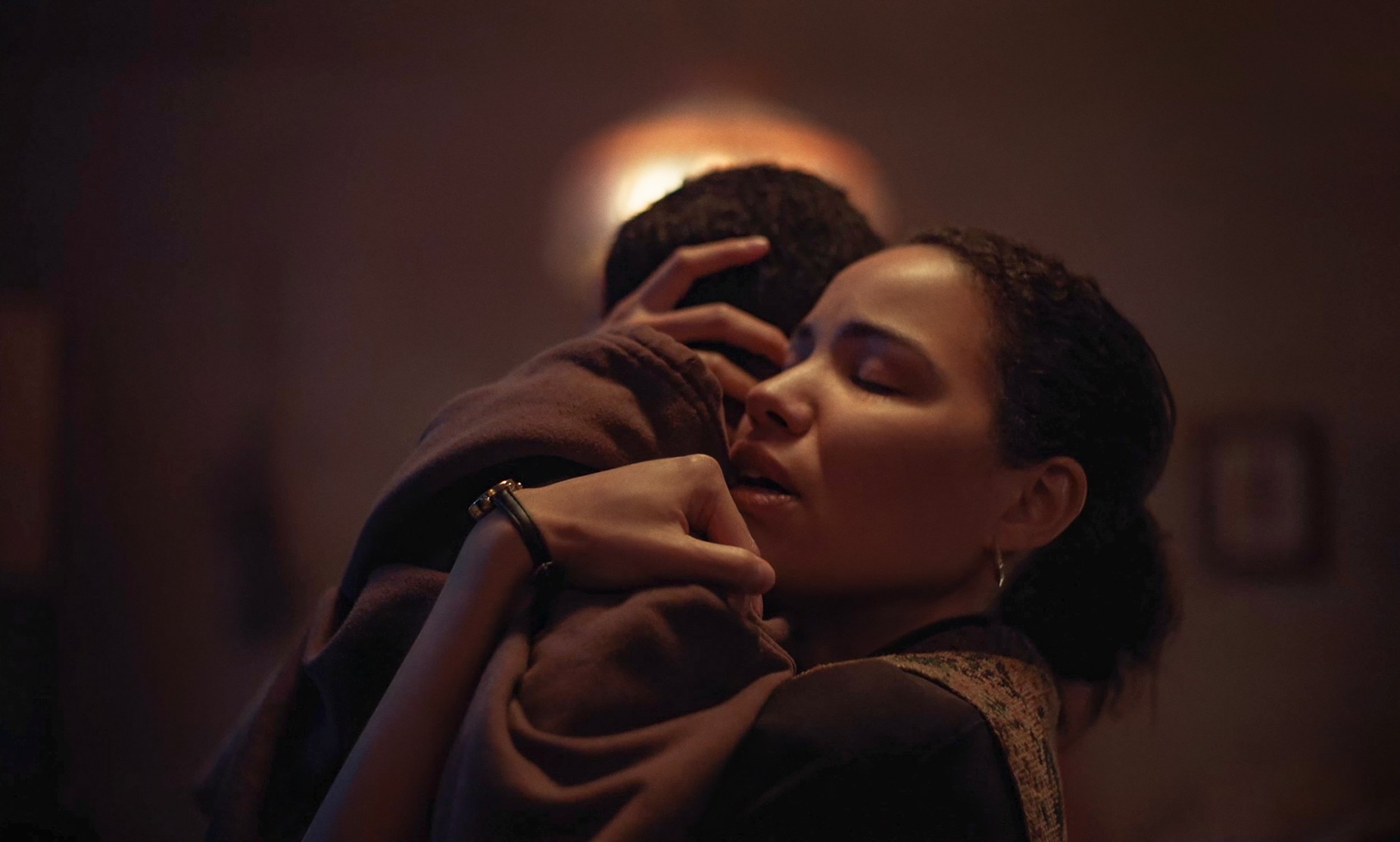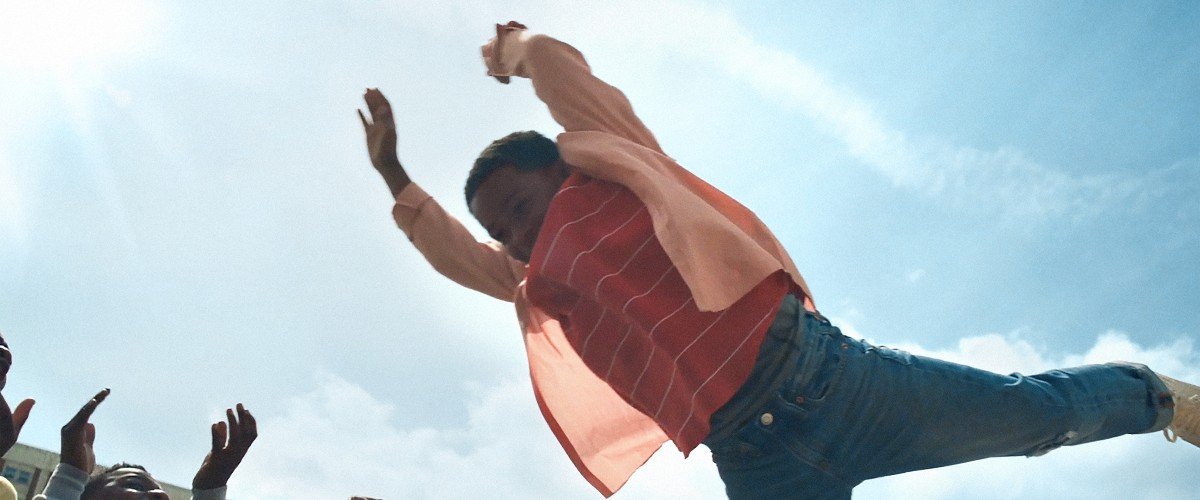Directed and written by: Minhal Baig
Starring: Blake Cameron James, Gian Knight Ramirez, Jurnee Smollett, S. Epatha Merkerson, and Lil Rel Howery
Runtime: 93 minutes
‘We Grown Now’ is a poetic story about childhood friendship
As director/writer Minhal Baig’s film opens, two elementary-age schoolboys, Malik (Blake Cameron James) and Eric (Gian Knight Ramirez), drag a twin-size mattress through the hallway of an apartment building. With a broken elevator temporally halting the dynamic duo’s expedition, they shuffle to the stairs and, eventually, outside as they lug the 8-foot sleeping apparatus down various streets for an unknown goal.
Well, Malik and Eric attain their ultimate purpose – which will not be revealed in this review – but to give a hint, their found aspiration is a joyous one, a whimsical occasion where childhood know-how provides a glorious, momentary reward that will echo with memories for years, similar to soaring on a 3-speed Huffy bike over a makeshift wooden ramp or completing a flip off a diving board for the first time at a local pool.
Bragging rights and mutual support.
The location is Chicago’s Cabrini-Green public housing center, built during WWII, but the year for “We Grown Now” is 1992. Michael Jordan is the King of the Basketball World, and people of all ages pay respects to His Highness. However, The Windy City residents offer exceptional homage, including 10-year-old boys who regularly debate Scottie Pippin’s value to the Chicago Bulls on the way to school.
“We Grown Now” centers around Malik and Eric’s friendship and home lives, but the movie doesn’t sprint over a 93-minute runtime. On the contrary, it strolls, rests, observes, and wonders.
Baig captures the poetic beauty of the freewheeling innocence and imagination of childhood while also constructing boundaries, healthy and unhealthy ones. Some figurative walls – like classrooms and parental directives – are universal, but others, like a nearby senseless murder and police overreach, are certainly not.
Still, Baig doesn’t stir up constant, exploitive dramatics that paint Cabrini-Green in heavy coats of woe and misery. Yes, slim household budgets and the chance of witnessing violence exist. These issues loom, but by and large, the screenplay nestles into Malik and Eric’s encouraging, two-person bond and sustains accommodating influences at home.
Malik’s mom, Dolores (Jurnee Smollett), fashions homecooked meals and serves them at the dinner table every evening. She’s a payroll clerk who recently learned about her co-workers’ elevated salaries, so Dolores yearns for something better for herself, Malik, Malik’s sister, and her mother (S. Epatha Merkerson). Moving out of Chicago was a previously unexplored option, but Dolores is presented with a plum choice that would require a change of neighborhood scenery.
Eric’s father, Jason (Lil Rel Howery), a widower, owns a pizza joint. He asks his son to help count the money for the impending monthly bills to illustrate the financial struggles that 10-year-old children don’t ordinarily realize.
Jason, Dolores, and Anita extend lofty pillars of support for their children, even if their internal fortitude feels wobbly over lifetimes of marching up steep societal gradients to make ends meet. Contentious race relations visually emerge in one brutal scene. The word – racism – isn’t spoken, but Anita’s explanation of her Mississippi backstory includes a vicious act against her family that – decades earlier - led her to Illinois. Dramatically less egregious but still frustrating, an ever-present exasperating drip from a faucet (that the landlord hasn’t fixed in months) implies a broader inequitable system or a simple case of neglect.
James and Ramirez give impressive performances as the BFFs. Their authentic alter egos regularly volley from playful humor, actively listen to the respective single parents, ponder the future, and have the wherewithal to exclaim, “I exist! We exist!” in a sometimes-heartless world.
Baig and cinematographer Pat Scola ensure to find splendor in plain sight, like occasional treetops, cracks in the ceiling that reveal sparkling stars, and streetlights’ glow shining through curtains while trains interrupt the artificial illumination like a visual Morse Code, pleading to these two young minds that a big world exists outside of Cabrini-Green.
One of the adult characters quietly pronounces, “Seems like we’re always running from something.”
Malik and Eric occasionally dash through their neighborhood with youthful exuberance, and hopefully, their futures will be filled with running to something.
All the while, the film’s music department lead, Jonas Tarm, accompanies Malik and Eric on their journey with a delicate and moving cavalcade of strings and ivory keys that offer hope to the young pair and induce tears from the movie audience. Yes, Malik and Eric are kids, but in some ways, they are also grown now.
Jeff’s ranking
3.5/4 stars















